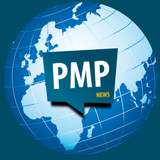Five most prepared countries for the green tech transition
The US, Sweden, Singapore, Switzerland, and the Netherlands are the top five prepared countries to use frontier technologies, while Guinea, South Sudan, and the Democratic Republic of Congo are the least prepared.

There is a technological divide between high and low-income countries for green tech transition. The US, Sweden, Singapore, Switzerland, and the Netherlands are the top five prepared countries to use frontier technologies, while Guinea, South Sudan, and the Democratic Republic of Congo are the least prepared.
T he United Nations Conference on Trade and Development (UNCTAD) has released new data ranking the most prepared countries to use or adopt frontier technologies. These technologies will be vital for the green tech transition.
The report states that the top five countries are Sweden, the United States, Singapore, Switzerland and the Netherlands. The ranking was based on five indicators: ICT, Skills, Industry, Research and Development and Finance. In total, 166 countries were ranked based on their level of preparedness to start using frontier technologies.
CONTINUE READING...
Enjoy unlimited access now.
To get full access to this article,
simply become a member of PUBLIC SQUARE now.
By doing so, you will be supporting
our independent journalism.
MEMBERSHIP OPTIONS:
£3/month ∙ £5/month ∙ £7/month
You can cancel anytime.
BECOME A MEMBER
Already a member? Sign in here!
BENEFITS OF MEMBERSHIP:
✅ Read exclusive member-only articles
✅ Read our daily review of the UK front pages
✅ Receive every new article by email
✅ Access all our articles
✅ Get Special Discounts with our partners
✅ Join the conversation: Comment our articles
✅ Access our archives
✅ More importantly: Support independent journalism and keep the magazine going
Read more

— A global report reveals rising repression and criminalisation of climate and environmental protests, with state and corporate actors employing anti-protest laws, harsher policing, and violence to stifle activism worldwide.

— Polling accuracy in the U.S. presidential election faced criticism, despite improved performance over 2020. Small errors in a tight race amplified perceived inaccuracies, but swing state polls generally proved reliable, reflecting a close contest, Professor John Curtice explains.

— National populism, fuelled by media-backed disinformation, anti-immigrant rhetoric, and libertarian ideologies, threatens democracies globally by eroding institutions, fostering fear, and exploiting divisions.

— A UK tribunal upheld the ban on a Chinese businessman, citing national security risks. His links to Prince Andrew underscore concerns about foreign influence and lapses in public scrutiny.
|
|

